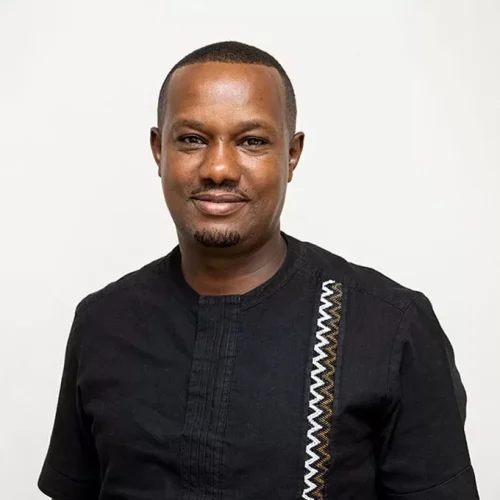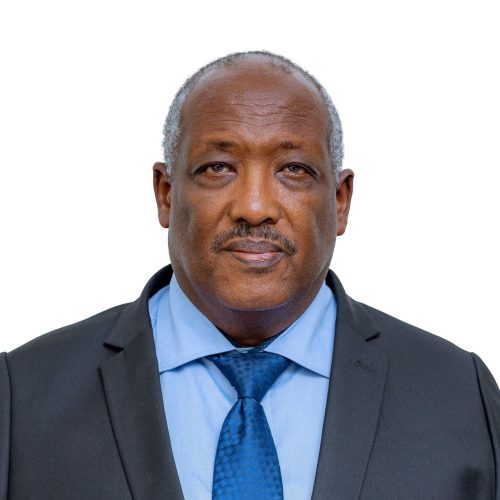Theme: 30 Years after Genocide Against the Tutsi in Rwanda: A Journey Towards Resilience.

Rwanda’s history is marked by the 1994 Genocide against Tutsi, inflicting deep physical and psychological trauma on both individuals and the nation. The aftermath of the 1994 Genocide against the Tutsi left a lasting mark on Rwandans, demanding significant efforts to address mental health challenges. The Rwanda Psychological Society and its partners are organizing the National Trauma Symposium, which will take place in Kigali, Rwanda, on December 12 -14, 2024. Reflecting on the progress made since the inaugural trauma symposium in 2019, significant improvements are visible. Notably, the emergence of private practice organizations and non-governmental organizations, as well as increased advocacy for donor engagement, laid the foundation for addressing mental health in Rwanda.
H.E. Jeannette Kagame’s address at the symposium highlighted the importance of home-grown solutions and collaborative efforts in supporting survivors and individuals with psychological wounds in accessing mental health services. This year’s symposium aims at reflecting on the past 30 years’ journey of resilience, documenting the lessons learned, best practices, challenges in trauma healing, and psychosocial support. The primary goal of the symposium is to formulate strategies that will build on previous recommendations, emphasize actionable research, and enhance collaboration in the mental health sector.



Director of Center for Human Genetics College of Medicine and Health Sciences
University of Rwanda

Rwanda is an excellent hub for meetings and events, with world-class facilities such as the Kigali Convention Centre which is conveniently located close to Kigali International Airport and offers a premium environment for regional and international conventions, exhibitions, festivals, meetings and other events.
©2024. National Trauma Symposium. All Rights Reserved.
Dr Darius Gishoma is the Mental Health Division Manager at the Rwanda Biomedical Center at the Ministry of Health in Rwanda. He is a senior Lecturer at the Mental Health Department, College of Medicine and Health Sciences, University of Rwanda. He holds a PhD in clinical psychology obtained from the Catholic University of Louvain/Belgium. For the last ten years, he has been involved in the training of mental health professionals in Rwanda at different levels: Mental Health Nurses, Psychologists, General Practitioners, Counsellors, and nonprofessional volunteers.
In addition to being a lecturer at the University, he maintains a clinical practice for individuals affected by genocide-related consequences and other Mental Health issues in Rwanda. Darius Gishoma has research interests in treatment development and evaluation of Post-Traumatic Stress Disorders (PTSD), Depression and Substance Abuse, Global Mental Health, Maternal and Child Mental Health, and Community-Based Interventions. He is a member of the Rwanda National Ethics Committee.
As a professor, he is dedicated to educating future psychologists, teaching key courses such as Psychopathology, Cognitive and Behavioral Therapy, and Personality Theories. His work continues to influence both academic and clinical practices in mental health.
Vincent Sezibera, PhD, is an accomplished Clinical Psychologist and Professor of Psychology in the Department of Clinical Psychology at the University of Rwanda (UR). He currently serves as President of the Rwanda Psychological Society and Director of the Centre for Mental Health at the College of Medicine and Health Sciences (CMHS). Prof. Sezibera’s expertise lies in Post-Traumatic Stress Disorder (PTSD) and child and adolescent traumatic grief, with a notable focus on trauma and bereavement experienced by young survivors of the 1994 genocide against the Tutsi in Rwanda.
His extensive research has resulted in the development of treatment protocols for PTSD and Complicated Grief (CG), contributing significantly to the field. Additionally, Prof. Sezibera has a strong research interest in the mental health impact of HIV/AIDS on children, where his studies reveal an increased risk of depression, anxiety, and other mental health challenges among HIV-affected children.
As a professor, he is dedicated to educating future psychologists, teaching key courses such as Psychopathology, Cognitive and Behavioral Therapy, and Personality Theories. His work continues to influence both academic and clinical practices in mental health.
Professor Leon Mutesa is an MD, PhD and full professor of human genetics, currently serving as the Director of the Center for Human Genetics at the College of Medicine and Health Sciences, University of Rwanda—a center he established in 2006. He obtained his MD from University of Rwanda in 2003 and subsequently earned his PhD in 2009 from the University of Liege, Belgium, where he also completed his post-doctoral in 2011. His illustrious career has been marked by substantial involvement in clinical services, academia, research, capacity building, and health sector management. Prof. Mutesa has held several prestigious positions, including Director of the Department of Clinical Laboratory at Kigali University Teaching Hospital, the largest referral hospital in Rwanda. He also served as the Director General of the Medical Research Center at the Rwanda Biomedical Centre under the Ministry of Health, where he orchestrated health-related research activities across national medical institutions. A pioneering figure in the field of genetics, Prof. Mutesa has spearheaded the development and implementation of Rwanda’s reference center for medical genetics, the only facility of its kind in East Africa. His advocacy has successfully led to the inclusion of genetic testing in health insurance coverage in Rwanda, enabling patients to access genetic and genomic diagnostics. He has supervised and mentored over 90 MSc, MMed, PhD, and post-doctoral fellows from Rwanda and international universities. With over 200 peer-reviewed publications to his name, Prof. Mutesa is a prolific contributor to scientific research field. He is a member of various expert committees and has led numerous regional and international research consortia and fora. Over the past 15 years, he has participated in multiple international research and training collaborations. Currently, he serves as dual Principal Investigator/Program Director for an NIH grant from the National Cancer Institute (NCI) for the U54 HIV/HPV Cancer Prevention, Treatment, and Pathogenesis project: Rwanda/Einstein (1U54CA190163), aimed at screening for HPV and cervical cancer in a large cohort of HIV-positive women. Additionally, he is the Principal Investigator for an NIH/H3Africa grant from the National Institute of Mental Health (NIMH) on the Transgenerational Epigenomics of Trauma and PTSD in Rwanda (U01MH115485), focusing on the transgenerational transmission of the epigenomic impact of genocide exposure and PTSD in women survivors of the Rwandan genocide and their offspring (https://www.nature.com/articles/s41588-022-01028-9). During the COVID-19 pandemic, Dr. Mutesa and his research team implemented various projects to enhance SARS-CoV-2 laboratory diagnostics and management. Their innovative pooling testing strategy, which optimizes limited testing resources, was published in Nature (https://www.nature.com/articles/s41586-020-2885-5). He is also the principal investigator of a national prospective cohort study evaluating the immune response to COVID-19 vaccines in the Rwandan population. Prof. Mutesa leads multiple research groups focused on infectious diseases (HIV, malaria, NTDs), genomics, genetics, and epigenetics. His outstanding contributions to human genetics have been recognized with the prestigious HUGO African Prize 2024 (https://www.hugo-international.org/hugo-african-prize/). He also serves as a board member of the International Vaccine Institute (https://www.ivi.int/international-vaccine-institute-appoints-two-members-to-its-board-of-trustees-representing-ecuador-and-rwanda/). Prof. Mutesa’s extensive expertise, leadership, and groundbreaking research continue to advance the field of human genetics and improve healthcare outcomes in Rwanda and beyond.
Dusingizemungu Jean Pierre is currently a Senator in the Senate of Rwanda. Professor of Psychology, he headed the Faculty of Psychology and Educational Sciences of the former National University of Rwanda where he actively participated in the creation of the department of Clinical Psychology. His research is generally focused on the reconstruction of Rwanda after the Genocide against the Tutsi.
Dusingizemungu Jean Pierre led the Ibuka Collective for more than 10 years.